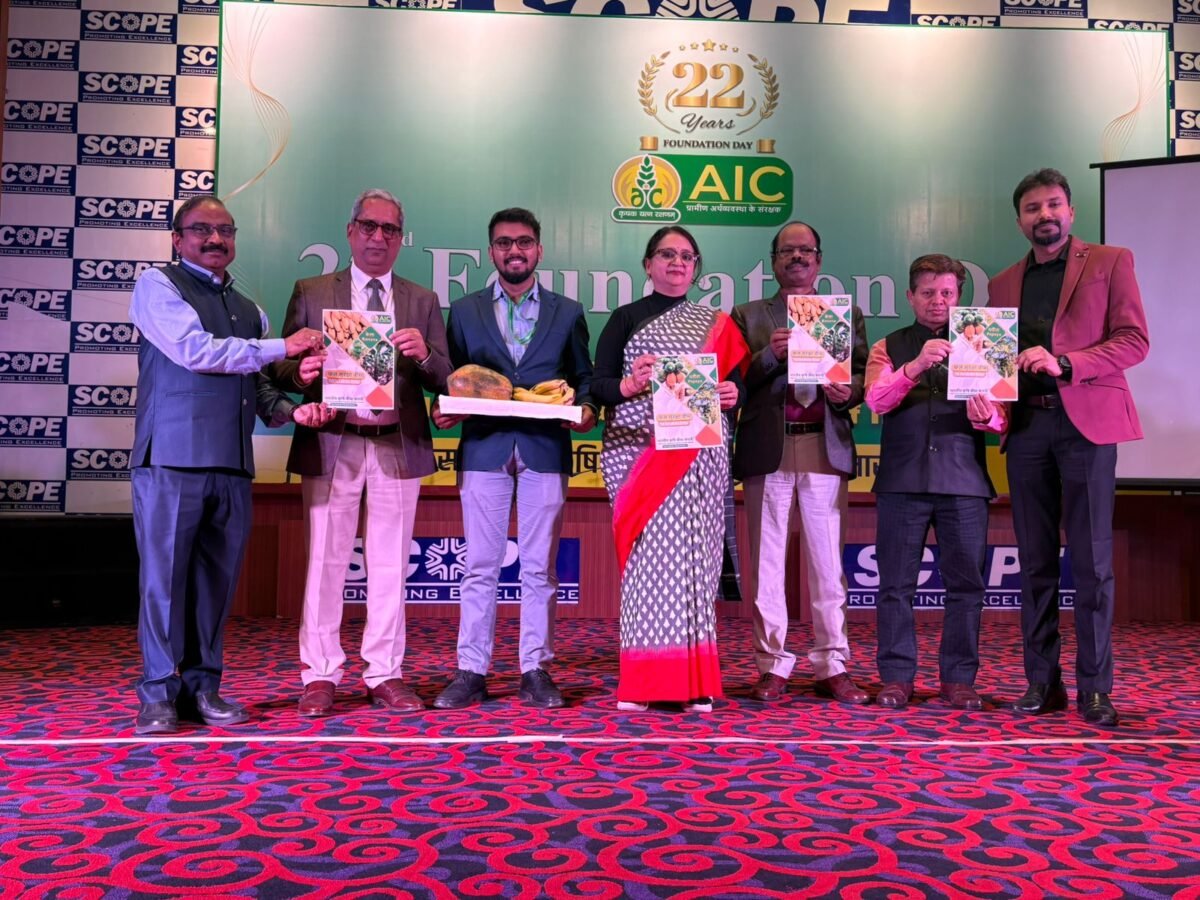People’s trust is the driving force behind AIC’s commitment to farmers’ welfare: CMD, AIC
As AIC embarks on its 23rd year, the organisation remains steadfast in its mission to empower farmers through affordable and effective insurance solutions. The occasion was graced by the presence of Dasarathi Singh, Executive Director; Lalit Kharbanda, General Manager; K. V. Raman, General Manager; Sandip S Karmarkar, General Manager; and Rohit Singhal, Appointed Actuary, whose participation added to the event’s significance
The Agriculture Insurance Company of India Limited (AIC), a key player in the agricultural insurance sector, recently celebrated its 22nd Foundation Day with enthusiasm and innovation. Among the key highlights of the event was the launch of a specialised insurance product, ‘Fal Suraksha Bima,’ designed exclusively for banana and papaya crops. This tailored offering reflects AIC’s dedication to addressing the specific needs of farmers and enhancing crop protection through innovative solutions.
Speaking at the event, Dr Lavanya R. Mundayur, CMD, AIC, expressed gratitude for the trust reposed in the company by millions of farmers across India. She said, “People’s trust in AIC is what keeps us moving to work for the welfare of India’s people, especially our farmers. AIC’s journey of more than 20 years has been remarkable. Having navigated through many challenges, the organisation has gained immense trust and emerged as a reliable partner in agricultural growth.”
The celebrations also saw the announcement of a significant initiative to adopt 22 villages under the “Sarba Bimit Gram” programme. This initiative aims to ensure that every household in these villages is covered by at least one insurance policy, including protection for assets and livestock. The gesture underscores AIC’s commitment to making insurance accessible to rural communities while fostering financial security and resilience.
The day’s events began with traditional rituals and performances, symbolising the company’s connection to its cultural roots. A presentation highlighting AIC’s evolution in crop insurance was a key feature, showcasing the strides made over the years in providing tech-driven and farmer-centric solutions. Senior officials urged employees to continue striving for excellence, with a shared vision of expanding AIC’s outreach and delivering innovative products that cater to the diverse needs of India’s agricultural sector.
AIC is the leading implementing agency for the Government’s flagship crop insurance scheme, Pradhan Mantri Fasal Bima Yojana (PMFBY). During the event, AIC also highlighted its extensive range of insurance products tailored to meet the diverse needs of farmers across the country. The company’s offerings include insurance for various crops and allied agriculture activities, such as Sampoorna Fasal Kawach (SFK), Consequential Crop Loss (CCL), Sampoorna Ritu Kawach (SRK) for crops and Sampoorna Pashudhan Kawach, Saral Krishi Bima, Shrimp Insurance, Sinchai Pranali Bima for Agriculture allied activities. These insurance products are aimed at addressing the unique challenges faced by farmers and enhancing their resilience against risks.
As AIC embarks on its 23rd year,


